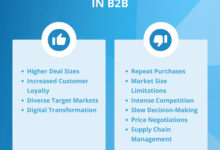B2B Marketplace: 7 Powerful Insights to Transform Your Business
Ever wondered how companies buy and sell in bulk without stepping into a physical market? Welcome to the world of B2B marketplaces—digital powerhouses reshaping global trade. Let’s dive in.
What Is a B2B Marketplace?

A B2B (business-to-business) marketplace is an online platform where businesses buy and sell products or services to other businesses. Unlike B2C (business-to-consumer) platforms like Amazon or eBay, B2B marketplaces focus on bulk transactions, long-term contracts, and complex supply chains. These platforms streamline procurement, reduce operational costs, and expand market reach for suppliers and buyers alike.
Core Definition and Functionality
At its core, a B2B marketplace acts as a digital intermediary connecting sellers and buyers in a structured, scalable environment. It enables businesses to list products, negotiate pricing, manage orders, and handle logistics—all within a single ecosystem. Think of it as a giant virtual trade show that never closes.
- Facilitates bulk purchasing and wholesale transactions
- Supports complex pricing models (tiered, negotiated, subscription)
- Integrates with ERP, CRM, and inventory systems
How It Differs from B2C Marketplaces
While B2C platforms cater to individual consumers with fixed pricing and instant checkout, B2B marketplaces are built for complexity. Transactions often involve custom quotes, multi-user accounts, credit terms, and longer sales cycles. For example, a manufacturer sourcing raw materials needs volume discounts and delivery schedules—something a typical consumer platform can’t offer.
“The average B2B transaction is 10x larger than B2C, and the decision-making process involves multiple stakeholders.” — McKinsey & Company
Why B2B Marketplaces Are Revolutionizing Global Trade
The rise of digital transformation has supercharged B2B marketplaces. They’re no longer niche tools but essential infrastructure for modern commerce. From SMEs to Fortune 500 companies, organizations are leveraging these platforms to cut costs, improve efficiency, and access new markets.
Scalability and Market Expansion
One of the biggest advantages of a B2B marketplace is its ability to scale. A small supplier in Vietnam can now reach buyers in Germany without setting up a local office. Platforms like Alibaba and Global Sources have democratized global trade, enabling even micro-businesses to participate in international supply chains.
- Access to millions of potential buyers
- Reduced dependency on traditional distributors
- 24/7 availability across time zones
Cost Efficiency and Operational Streamlining
Traditional procurement involves endless emails, phone calls, and paperwork. B2B marketplaces automate much of this. With integrated payment systems, digital contracts, and real-time inventory tracking, businesses save time and reduce human error. According to a study by Deloitte, companies using digital procurement platforms report up to 30% lower operational costs.
Top 5 B2B Marketplaces You Should Know
Not all B2B marketplaces are created equal. Some specialize in manufacturing, others in software or logistics. Here are five of the most influential platforms shaping the industry today.
1. Alibaba.com
As the world’s largest B2B marketplace, Alibaba connects millions of suppliers, mostly from China, with buyers globally. It’s particularly strong in electronics, machinery, and raw materials. The platform offers trade assurance, secure payments, and logistics support.
- Over 200,000 suppliers in the electronics sector alone
- Trade Assurance protects buyers against non-delivery
- Integrated with Cainiao for global shipping
2. ThomasNet
ThomasNet is a U.S.-based platform focused on industrial products and manufacturing services. It’s a go-to for engineers and procurement managers looking for precision components, custom fabrication, and OEM parts.
- Comprehensive supplier database with CAD models
- RFQ (Request for Quotation) system for custom orders
- Strong presence in North American manufacturing
3. Amazon Business
Yes, Amazon isn’t just for consumers. Amazon Business serves over 5 million businesses with office supplies, lab equipment, and MRO (maintenance, repair, and operations) products. It offers tax-exempt shopping, business-only pricing, and multi-user accounts.
- Over $25 billion in annual sales (as of 2023)
- Integration with SAP Ariba and Coupa
- Prime for Business with fast shipping
4. Kompass
Kompass is a global B2B directory and marketplace that helps businesses find suppliers by industry, product, and region. It’s especially useful for niche markets and B2B lead generation.
- Covers over 60 million companies in 60 countries
- Advanced filtering by ISO certifications, export capacity
- Strong in European and Middle Eastern markets
5. EC21
EC21 is a South Korea-based B2B marketplace with a strong presence in Asia and emerging markets. It focuses on wholesale trade and offers free membership for basic listing, making it accessible for small exporters.
- Over 2 million registered suppliers
- Supports 18 languages
- Popular for textiles, automotive parts, and consumer goods
How to Choose the Right B2B Marketplace for Your Business
Selecting the right platform can make or break your digital strategy. It’s not just about traffic—it’s about fit, functionality, and long-term growth potential.
Assess Your Industry and Target Market
Not every marketplace serves every industry. If you’re in aerospace components, ThomasNet might be ideal. If you’re selling consumer electronics in bulk, Alibaba or Global Sources would be better. Research where your ideal customers are already buying.
- Identify platforms with high buyer activity in your niche
- Check if the platform supports your product categories
- Look for regional strengths (e.g., EC21 in Asia)
Evaluate Platform Features and Integration
Modern B2B buyers expect seamless experiences. Ensure the marketplace supports API integration with your ERP, CRM, or inventory systems. Features like digital catalogs, e-signatures, and automated invoicing can significantly reduce friction.
b2b marketplace – B2b marketplace menjadi aspek penting yang dibahas di sini.
- Does it support EDI (Electronic Data Interchange)?
- Can you sync stock levels in real time?
- Is there a mobile app for on-the-go access?
Analyze Fees and Revenue Models
B2B marketplaces use various monetization models: subscription fees, commission-based sales, pay-per-lead, or hybrid models. Alibaba charges for premium memberships (Gold Supplier), while Amazon Business takes a referral fee. Calculate your break-even point before committing.
- Compare listing costs vs. expected ROI
- Beware of hidden fees (e.g., transaction processing)
- Consider long-term scalability of the model
The Role of Technology in B2B Marketplaces
Behind every successful B2B marketplace is a robust tech stack. From AI-driven recommendations to blockchain-based contracts, technology is redefining how businesses interact.
AI and Machine Learning for Personalization
AI helps buyers discover relevant suppliers faster. Platforms like Amazon Business use machine learning to recommend products based on past purchases, industry trends, and peer behavior. For sellers, AI can optimize pricing, forecast demand, and detect fraud.
- Dynamic pricing engines adjust quotes in real time
- Chatbots handle 80% of routine customer inquiries
- Predictive analytics reduce stockouts and overstocking
Blockchain for Trust and Transparency
In high-value B2B transactions, trust is critical. Blockchain technology enables tamper-proof records of contracts, shipments, and payments. For example, IBM’s TradeLens uses blockchain to track container shipments across global supply chains, reducing disputes and delays.
“Blockchain can reduce supply chain reconciliation costs by up to 30%.” — World Economic Forum
Cloud and API Integration
Modern B2B marketplaces rely on cloud infrastructure for scalability and uptime. APIs allow seamless data exchange between the marketplace and a company’s internal systems. This integration ensures real-time inventory updates, order synchronization, and automated accounting.
- RESTful APIs enable plug-and-play connectivity
- Cloud platforms like AWS and Azure ensure 99.9% uptime
- Integration reduces manual data entry by 70%
Challenges and Risks in B2B Marketplaces
Despite their advantages, B2B marketplaces come with challenges. From competition to data security, businesses must navigate these risks carefully.
Intense Competition and Price Pressure
On large platforms like Alibaba, hundreds of suppliers may offer the same product. This drives down prices and margins. To stand out, businesses must differentiate through quality, service, or branding—not just price.
- Commoditization can erode profit margins
- Buyers have more power to negotiate
- Need for strong value proposition beyond cost
Data Security and Privacy Concerns
Sharing business data on third-party platforms carries risks. Sensitive information like pricing strategies, customer lists, or inventory levels could be exposed. Ensure the platform complies with GDPR, CCPA, or other relevant regulations.
- Use encrypted connections (HTTPS, SSL)
- Limit data shared to essential fields only
- Regularly audit platform security practices
Dependence on Platform Algorithms
Like Google rankings, B2B marketplaces use algorithms to determine visibility. If your listings drop in search results, sales can plummet overnight. Diversify your presence across multiple platforms to reduce dependency.
“Relying on a single B2B marketplace is like putting all your eggs in one digital basket.” — Forbes
Future Trends Shaping the B2B Marketplace Landscape
The B2B marketplace ecosystem is evolving rapidly. Emerging trends like vertical specialization, sustainability, and AI-driven procurement are setting the stage for the next decade.
Rise of Vertical-Specific Marketplaces
Generalist platforms are facing competition from niche players. For example, FoodMarketConnect focuses exclusively on food and beverage suppliers, while MediBuy serves healthcare providers. These vertical platforms offer deeper industry knowledge, better compliance tools, and more targeted buyer bases.
- Higher conversion rates due to focused audience
- Better regulatory compliance (e.g., FDA, ISO)
- Stronger community and trust among users
Sustainability and Ethical Sourcing
Buyers are increasingly demanding transparency in sourcing. Platforms are responding by adding sustainability filters—showing carbon footprint, labor practices, or recyclability. For instance, SAP Ariba now includes a “Sustainability Score” for suppliers.
- 60% of B2B buyers consider sustainability in procurement (Nielsen)
- Green certifications boost visibility and trust
- Suppliers with ESG reports see 20% higher engagement
AI-Powered Procurement Assistants
The future of B2B buying may involve AI agents that automatically reorder supplies, negotiate contracts, and compare suppliers. These digital assistants will use real-time data to make decisions, reducing human intervention and improving efficiency.
- AI can analyze supplier performance and risk scores
- Automated RFQ generation saves hours of manual work
- Proactive alerts for price changes or delivery delays
How to Succeed as a Seller on a B2B Marketplace
Just listing your products isn’t enough. To thrive, you need a strategic approach to branding, customer service, and data analytics.
Optimize Your Product Listings
High-quality images, detailed descriptions, and accurate specifications are non-negotiable. Use keywords that buyers search for, and include technical data sheets, CAD files, or compliance certificates where applicable.
- Use high-resolution images from multiple angles
- Include SKUs, MOQs (Minimum Order Quantities), and lead times
- Add videos showing product use in real environments
Build Trust Through Reviews and Certifications
Buyers are more likely to purchase from suppliers with verified reviews and industry certifications. Encourage satisfied customers to leave feedback, and display badges like ISO 9001, CE, or FDA approval prominently.
b2b marketplace – B2b marketplace menjadi aspek penting yang dibahas di sini.
- Verified reviews increase conversion by 35% (Spiegel Research Center)
- Certifications reduce perceived risk
- Response rate to inquiries impacts search ranking
Leverage Analytics to Improve Performance
Most platforms provide seller dashboards with insights on views, clicks, and conversion rates. Use this data to refine your pricing, adjust inventory, or target underperforming products.
- Track which keywords drive the most traffic
- Monitor competitor pricing and adjust dynamically
- Use A/B testing for product titles and images
B2B Marketplace vs. Traditional Sales: A Comparative Analysis
How does selling on a B2B marketplace stack up against traditional methods like direct sales teams or trade shows? Let’s break it down.
Cost and Resource Efficiency
Traditional sales require a large team, travel budgets, and months of relationship-building. B2B marketplaces reduce these costs by providing instant access to a global buyer pool. While personal relationships still matter, digital platforms handle the heavy lifting of discovery and negotiation.
- Marketplaces reduce customer acquisition cost by 40-60%
- No need for physical sales reps in every region
- Faster time-to-market for new products
Speed and Scalability
A trade show might generate 100 leads in a week. A well-optimized listing on Alibaba can generate thousands of views daily. The scalability of digital platforms allows rapid growth without proportional increases in overhead.
“Digital channels can scale 10x faster than traditional sales models.” — Harvard Business Review
Relationship Depth vs. Transactional Breadth
While marketplaces excel at volume, they may lack the deep relationship-building of traditional sales. High-value contracts often still require face-to-face meetings, legal negotiations, and customized solutions. The ideal approach? Use marketplaces for lead generation and scale, and traditional methods for closing strategic deals.
What is a B2B marketplace?
A B2B marketplace is an online platform where businesses buy and sell goods or services to other businesses. It streamlines procurement, supports bulk transactions, and connects suppliers with global buyers.
How does a B2B marketplace make money?
B2B marketplaces use various revenue models, including subscription fees, commission on sales, pay-per-lead, or advertising. For example, Alibaba charges for Gold Supplier memberships, while Amazon Business takes a referral fee.
Is Amazon a B2B marketplace?
Yes, Amazon Business is a major B2B marketplace offering office supplies, industrial products, and MRO items to businesses worldwide. It features business-only pricing, tax-exempt shopping, and integration with procurement systems.
What are the risks of using a B2B marketplace?
Risks include intense competition, price pressure, data security concerns, and over-reliance on platform algorithms. Sellers should diversify across multiple platforms and protect sensitive business information.
How do I start selling on a B2B marketplace?
To start, choose a platform relevant to your industry, create a professional seller account, optimize your product listings with high-quality content, and leverage analytics to improve performance over time.
B2B marketplaces are no longer optional—they’re essential for any business looking to compete globally. From Alibaba to Amazon Business, these platforms offer unmatched access to buyers, cost savings, and operational efficiency. While challenges like competition and data security exist, the benefits far outweigh the risks when approached strategically. By choosing the right platform, leveraging technology, and focusing on trust and visibility, businesses can unlock new growth opportunities in the digital age. The future of B2B commerce is online, scalable, and smarter than ever.
b2b marketplace – B2b marketplace menjadi aspek penting yang dibahas di sini.
Further Reading:




